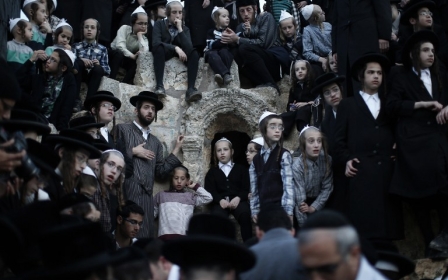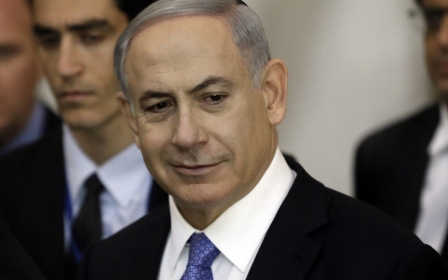Israel: 67 years old and still not sure what to be

The retirement age for men in Israel is 67. That’s when an Israeli man becomes a pensioner, and can ride the bus for half fare. And there are other discounts. But when a state reaches that age - as Israel does today (by the Hebrew calendar) - it gets no discounts and no pension.
At 67, Israel still has no idea where it is going. It is the only state on the planet without borders: it has no clear and recognised physical boundaries and sometimes lacks other boundaries as well. It doesn’t know what kind of state it wants to be. Does it want a Western or a Mediterranean character? Religious or secular? Democratic or apartheid? Two-state solution or one? None of these questions has a clear answer yet in Israel.
The Israeli Titanic sails on as if there were no tomorrow and no icebergs looming. Israel doesn’t even ask itself where it wants to get to. Israelis want “quiet,” yes; who doesn’t? They also used to say they wanted “peace.” They’ve always said they want “security.” But each of these legitimate aspirations has a price. To achieve these aspirations, Israel needed to take some brave steps, some very daring steps, which it has never taken; but these goals can’t be reached any other way. What’s left when speaking of peace or quiet or security is just empty rhetoric: Israeli society has no actual, clear goals.
But of all the goals, real or imaginary, to which Israelis aspire now or to which they have aspired since the state’s founding, the foremost is, of course, to be a “Jewish and democratic” state. Since this is the touchstone of Israeli thinking, on the country’s 67th Independence Day one must pause to reconsider the idea. Jewish and democratic? The falsity is right there at the foundations. There is no other state anywhere, apart from Iran and Pakistan, maybe, which define themselves by the religion or national origin of part of their population, even if it is a majority. France does not declare its desire to be “French and democratic,” Canada doesn’t seek to be “Canadian and democratic,” and of course the USA has never defined itself as “American and democratic.”
Self definition: self deception
Israel has. Jewish and democratic. Every state has a right to define itself, but not deceptively: not if it is deceiving itself, its citizens and the rest of the world. There is no such thing as Jewish and democratic – not because there is no other state that defines itself according to the religion and national origin of part of its citizenry, but because yoked to this pair of terms, Jewish and democratic, is an unbridgeable, insoluble, inner contradiction – and so the definition is deceptive. Note that Israelis will generally say “Jewish-democratic,” and not the other way around, “democratic-Jewish.” This is indicative of their priorities. Most will say that “Jewish” is more important to them than “democratic.” Hence most are aware of the contradiction or at least the friction between the two terms.
There is no such creature as this, Jewish-democratic; it simply does not exist. Of course no one in Israel has any notion of what it means to be a Jewish state. Does it mean a religious Jewish state according to Halacha (Jewish law)? How will Israel’s Jewish character be determined? By not having public transportation on the Sabbath? The majority apparently opposes that. But for argument’s sake: whatever the “Jewish” part means in “Jewish-democratic,” the concept accords decisive privileges to Jews in the state of Israel.
These privileges began, of course, with the first law ever passed in the state of Israel, the Law of Return, the raison d’etre of the state. The Law of Return clearly defines absolute privileges for its Jewish citizens (four-fifths of the citizenry) over its Arab citizens (one-fifth). This law automatically accords immediate Israeli citizenship to anyone who can prove Jewish affiliation, including people who are half or one-third Jewish, to the second and third generation. In the early 1990s under this law, for example, around a million immigrants from the former Soviet Union came to Israel, at least a third of them not recognized as Jewish but only married to Jews, or descendants of Jews. The door was wide open for them.
Whose right to return?
But for the one in five Israeli citizens who are Palestinian, and who have longstanding connections with this land, there is no such right, even under desperate humanitarian circumstances. Take, for example, the Haifa artist Abed Abadi, who like his parents and grandparents was born here; he sought to rescue his aged sister Lutfiya from the Yarmouk Refugee Camp in Syria. Yarmouk camp has been a dangerous firing zone for years and most of it has been reduced to rubble. Yet there was no chance whatsoever that the state of Israel would allow Lutfiya, who was also born here, to come back as an immigrant or, more accurately, to return to her homeland. Lutfiya’s right of return is seen in Israel as the mother of all threats. In Hebrew there are two terms for the noun “return,” both of which come from the same Hebrew root, yet one term (shvut) is reserved for Jews and is permitted, while the other (shiva) is reserved for Palestinians and is not only prohibited, but perceived as an existential danger (to the state and its privileged Jewish majority).
The “right of return” is of course just one of the numerous civil perks privileging Jews over Palestinian citizens of Israel. It is the mother of all privileges, but alongside it there is a long series of other privileges for Jews only, and that’s before we get to the discrimination against non-Jewish citizens of Israel in all, truly all, spheres of life. This is the foundation of the “Jewish” part of “Jewish and democratic” and it completely contradicts the “democratic” part. Since there is no democracy without equality, there is of course also no such civil description encompassing both “Jewish” and “democratic.”
On Israel’s 67th Independence Day, this issue, among others, will rumble in the depths but never emerge for broad scrutiny in the light of day. A society in profound, absolute denial, Israel will continue to ignore the real problems before it, obsessing on the Iranian atomics and closing its eyes to the many other and arguably more fateful questions about its future and the kind of country it wants to be. Deep in denial is not the way to celebrate a 67th birthday.
- Gideon Levy is a Haaretz columnist and a member of the newspaper's editorial board. Levy joined Haaretz in 1982, and spent four years as the newspaper's deputy editor. He was the recipient of the Euro-Med Journalist Prize for 2008; the Leipzig Freedom Prize in 2001; the Israeli Journalists’ Union Prize in 1997; and The Association of Human Rights in Israel Award for 1996. His new book, The Punishment of Gaza, has just been published by Verso.
The views expressed in this article belong to the author and do not necessarily reflect the editorial policy of Middle East Eye.
Photo: A cat stands on a fence next to Israeli flags decorating a kindergarten in the centre of Kibbutz Nahal Oz, located near the border with Gaza Strip, on April 20 2015 ahead of celebrations marking Israel's Independence Day. (AFP)
New MEE newsletter: Jerusalem Dispatch
Sign up to get the latest insights and analysis on Israel-Palestine, alongside Turkey Unpacked and other MEE newsletters
Middle East Eye delivers independent and unrivalled coverage and analysis of the Middle East, North Africa and beyond. To learn more about republishing this content and the associated fees, please fill out this form. More about MEE can be found here.





